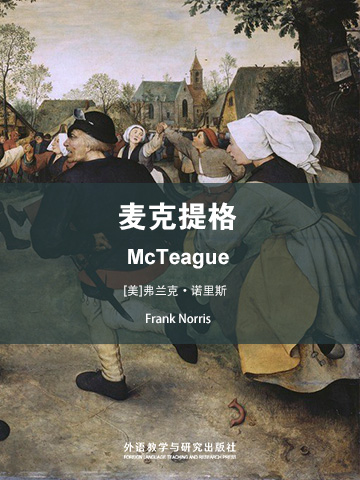McTeague is one of the most purely naturalistic American novels of the nineteenth century. With its compelling portrayal of human nature at its most basic level, McTeague is a gripping and passionate tale of greed, degeneration and death. It is also one of the first major works of literature to set in California, and it provided the story for Erich von Stroheim's classic of the silent screen, Greed.
《麦克提格》是美国作家弗兰克·诺里斯的一篇杰作,它深刻而集中地考察了人的内在道德缺陷,但很多场景类似于通俗闹剧。前半部真实地描写了城市下层人民的生活情景,后半部把主人公麦克提格——一个牙科医生的悲剧归咎为生理上的缺陷,作者描述他“善良的结构背后有一条遗传性的邪恶暗流”。最后由于贪婪而逐渐堕落,最后杀死了他的守财奴般的妻子。它被称为"美国自然主义的宣言",其悲剧性得到评论家们的公认。
McTeague is a novel by Frank Norris, first published in 1899. It tells the story of a couple's courtship and marriage, and their subsequent descent into poverty, violence and finally murder as the result of jealousy and greed. The book was the basis for the films McTeague (1916) and Erich von Stroheim's Greed (1924). It was also adapted as an opera by William Bolcom in 1992.
- CHAPTER 1
- CHAPTER 2
- CHAPTER 3
- CHAPTER 4
- CHAPTER 5
- CHAPTER 6
- CHAPTER 7
- CHAPTER 8
- CHAPTER 9
- CHAPTER 10
- CHAPTER 11
- CHAPTER 12
- CHAPTER 13
- CHAPTER 14
- CHAPTER 15
- CHAPTER 16
- CHAPTER 17
- CHAPTER 18
- CHAPTER 19
- CHAPTER 20
- CHAPTER 21
- CHAPTER 22
- 书评 写书评
- 笔记
-
书评加载中...













 京公网安备 11010802032529号
京公网安备 11010802032529号
笔记加载中...